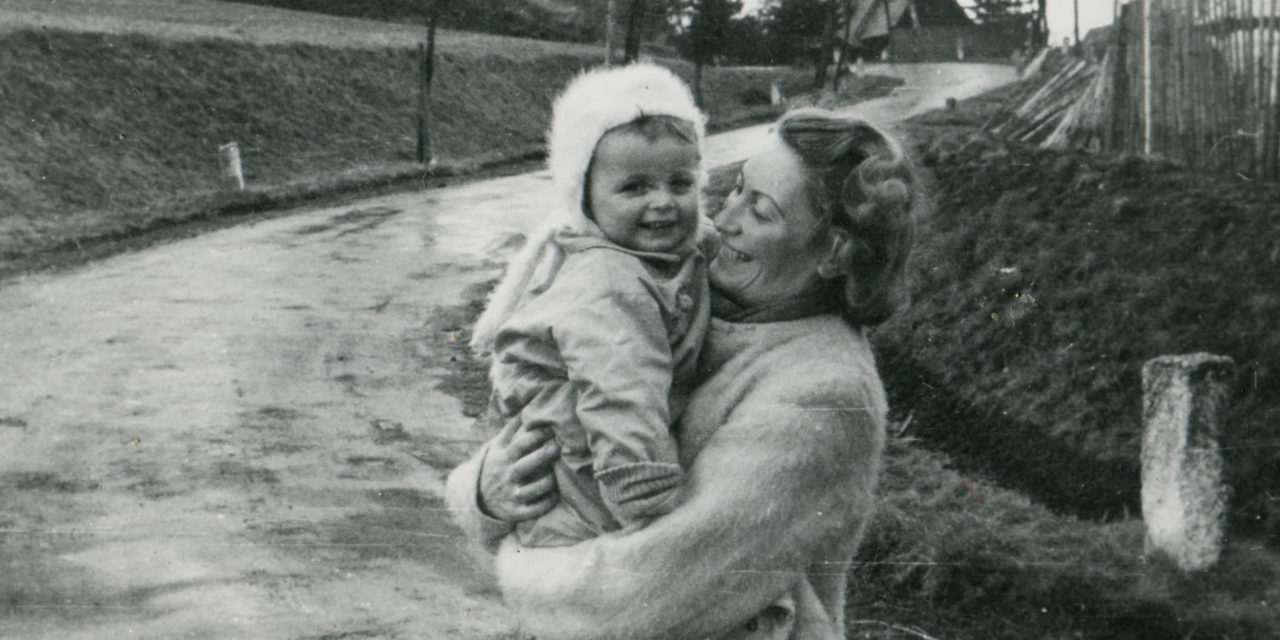Most families have running jokes, memories and moments talked about and discussed repeatedly across the years. They can bond us and help elicit happy recollections of days gone by.
My mother, whose been gone since 2012, loved to bring up something I said when I was just ten years old. She said it always tickled her. We were at church, milling about and talking with the pastor and some friends. The subject of age came up, and I apparently blurted out, “I never knew my mother when she was young!”
At the time, my mom was fifty, which is actually my age now. You can do the math. That means she had me when she was forty. Back in 1982, a half-century ago seemed ancient to me. It was the Great Depression – and nine years before the start of World War II. Thinking of my mother’s childhood and era, I may have even thought of those days in black-and-white. I wasn’t trying to be witty or sarcastic. It was just a matter of fact. From the lips of a child, so to speak.
I thought of that story this morning after seeing that just yesterday, The Centers for Disease Control and Prevention released its annual report concerning births in America for 2021. This particular edition, published under the banner of “National Vital Statistics Reports – Volume 72, Number 1,” paints the picture regarding not just the numbers of births, but also maternal demographic and health characteristics, medical and health care utilization, source of payment for the delivery, and even infant health characteristics.
The main headline was that there were 3,664,292 births in the United States, an increase of 1% between 2020 and 2021. Any increase is good, but the number is still well below the replacement rate of 2.1 births per woman of childbearing age. It currently sits at 1.7.
But I thought about my late mother when I saw there was a 5% jump in births for mothers in their 40s. There was a 3% increase for moms in their 30s. With more couples delaying marriage and children, it’s inevitable that children will come later, if they come at all. Of course, that’s the crux of the crisis facing the family. That’s why all this talk about over population is such utter nonsense. We’re not suffering from too many people. We’re suffering from too few.
Delaying children is a very personal decision, but married couples should be well aware that waiting too long may wind up being too late. Infertility challenges increase exponentially with age. It’s a dangerous thing to think or believe that we have absolute control over our fertility. It’s God who is the giver of life.
My own mother didn’t wait to have children. I actually was child number six. She suffered a miscarriage between children three and four. But growing up with an older mother was delightful. She would tell you that she was far more relaxed and easier going the sixth time around. My cries didn’t worry her. She used to say if a child is crying, everything was going to be fine. Instead, it was silence that got her attention.
Older mothers don’t just bring perspective, but also the wisdom of the years. Having lived through multiple wars and societal uprisings, my mom taught us from the depths of her experience. She had lived long enough to know that history is cyclical. It was the writer of Ecclesiastes who noted, “That which is, already has been; that which is to be, already has been; and God seeks what has been driven away” (Ecc. 3:15).
But Lyman Stone with the American Enterprise Institute and the Institute for Family Studies summed up many demographers’ worst concerns in saying she “worries most that women will not be able to have the number of children they desire because of various factors – a kind of human tragedy that could also lead to people being lonelier and maybe poorer as they grow old.”
Mr. Stone makes a critical point, but we need to keep in mind that the future of humanity exists on women having babies, and at present, that’s not happening enough. Our tomorrow depends on us having our babies today.
Photo from Shutterstock.






